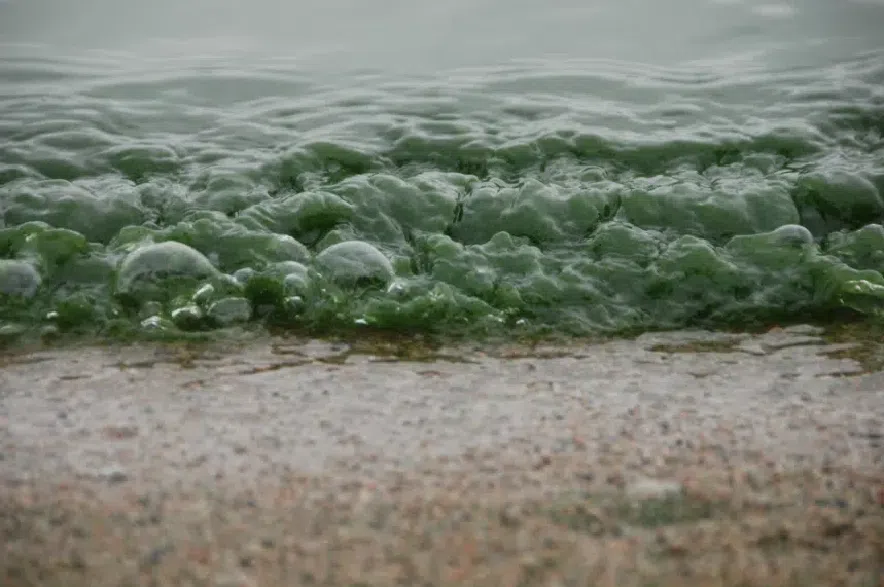Regina’s tap water could taste a little funky this spring.
Thanks to some big delays with the Buffalo Pound Water Treatment Plant getting some of the parts it needs, there’s a chance the upgrades needed to help prevent cyanobacteria blooms will not be ready by the spring.
Read More:
- Look before you leap: Everything you need to know about blue-green algae in Sask.
- City warns of blue-green algae blooms in Regina’s retention ponds
- Regina citizens’ water bills climb after smart water meter upgrade
Cyanobacteria, also known as blue-green algae, is a type of bacteria that occurs in fresh bodies of water. It typically grows and spreads in freshwater lakes and rivers, especially slow-moving water, areas that experience higher water temperatures and areas rich in nutrients such as nitrogen and phosphorus.
Ryan Johnson, president and CEO of Buffalo Pound Water, said that while cyanobacteria is considered toxic, it becomes safe once it passes through the treatment plant.
“When it comes to treated water, the treatment process destroys it,” Johnson said.
“It’s a non-issue as a potable water to consume, but cyanobacteria itself, when you get to blue-green algae blooms, is actually toxic, but it’s toxic in the raw form in the lake, not in the treated water.”
The parts the treatment plant is currently waiting for are needed for the facility’s new ozone system. The system works by disrupting the organic material coming into the facility and turning it into something the facility’s new biologic activity carbon contactors can consume. The process also gets rid of the taste and odour caused by cyanobacteria, and once the upgrades are completed issues with taste and odour should be something of the past.
Johnson said that the delay isn’t something that could have been prevented.
“The main supplier of a couple of the key components for the system just couldn’t deliver the material when everyone thought it would be delivered, and they were behind by many, many months. So because of that, it just sort of causes a cascade of problems,” said Johnson.
He said that the issues with smell and taste the city could be dealing with in spring are also not a certainty.
“There’s that potential that something in the commissioning phase could go wrong, so things may take a little longer and it could be things like the program,” he explained.
“As you actually run the equipment, you may find that something wasn’t quite as expected and the contractor will have to then go and make the adjustments to make sure everything’s working correctly,” said Johnson.
“It’s not unusual,” he added. “It’s just… getting really close to where we would anticipate we could see taste and odour issues.”












